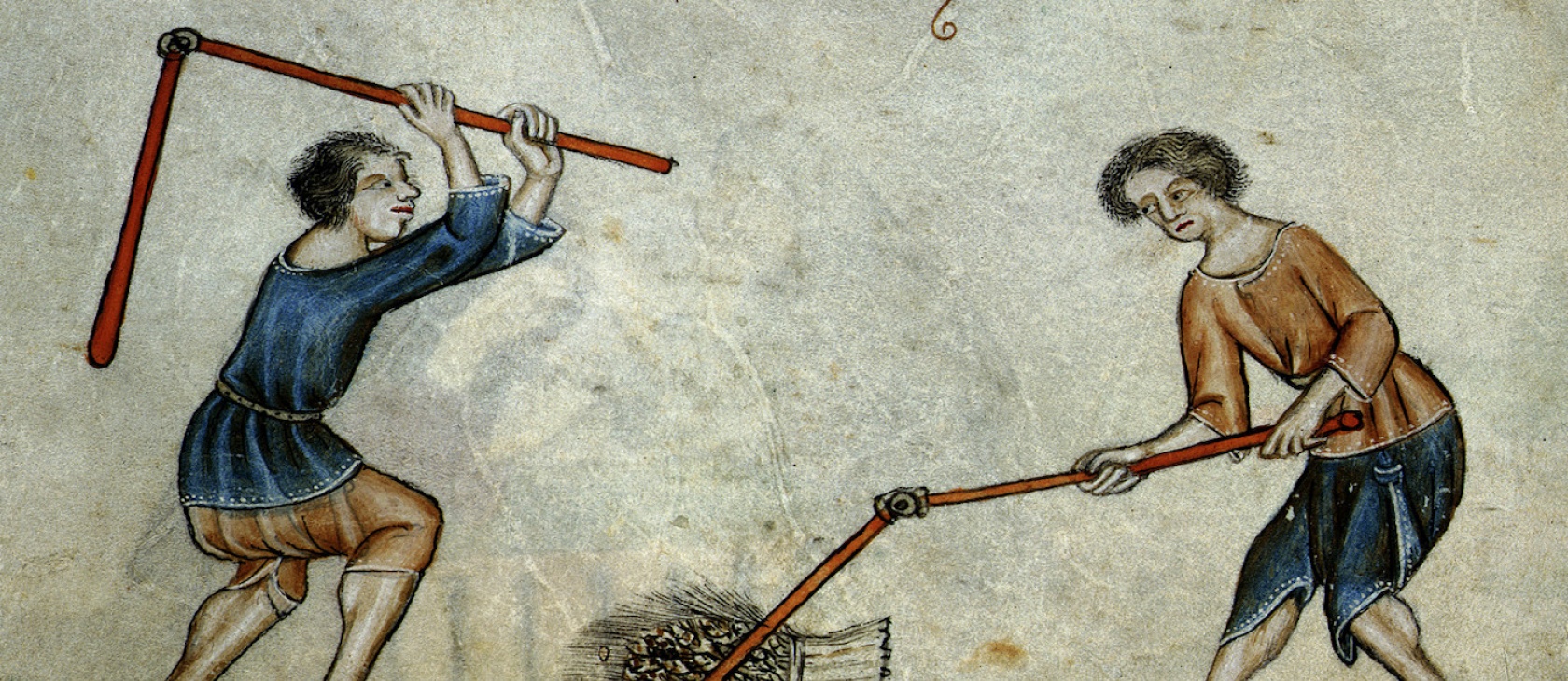The Coming of Neo-Feudalism: A Warning to the Global Middle Class
Joel Kotkin | Encounter Books | 2020 | 224 pages
Reviewed by John Couretas
California has long been regarded as a cultural bellwether, a place where America’s future gets its trial run. Look to California, the thinking goes, and you will see where the country is headed just a few years hence. After all, how can you argue with the genius of a place, a people, who gave us the Beach Boys, Disneyland, John Wayne, Silicon Valley, and the internet (the Advanced Research Projects Agency Network, or ArpaNet)? But given what has happened to the Golden State in recent years, we might want to rethink – or even revoke – its bellwether status.
Writing in 2018, the demographer and social critic Joel Kotkin observed that California was reverting to a form of 21st century feudalism, with rigid social structures and an appalling lack of opportunity for those in the middle and working classes in the Golden State. “The real problems lie with policies that keep housing prices high, an education system that is a disgrace, particularly for the poor, and a business climate so over-regulated that jobs can be created either in very elite sectors or in lower-paying service professions,” Kotkin wrote. “Even in the Bay Area in coming decades regional agencies predict only one in five new jobs will be middle income; the rest will be at the lower end.”
Kotkin – the presidential fellow in urban futures at Chapman University in Orange, California – has now taken his feudal-future paradigm and overlaid it on the entire nation. The Coming of Neo-Feudalism: A Warning to the Global Middle Class reviews the rigid class structures of the Middle Ages and finds analogs – if not directly, then in “salient features” – in a hardening 21st Century technocratic caste system that looks more and more like nobility for a few and serfdom for the masses. And their policy prescriptions for our future would lock that system into place.
Borrowing a term coined by Samuel Taylor Coleridge, Kotkin identifies today’s “influential cognitive elite” as the “clerisy,” a modern-day analog to the medieval clergy grouped historically in the First Estate. “Today’s clerisy are the people who dominate the global web of cultural creators, academia, the media, and even much of what remains of traditional religious institutions,” Kotkin writes. The clerisy shares much of the beliefs of a ruling oligarchy on such definitive issues as environmentalism, globalization, and immigration.
The nobility formed the Second Estate in feudal society. Kotkin identifies today’s nobles not by their aristocratic inheritance and bloodlines, but as those who reap benefits from an increasingly unequal economy. These Second Estate oligarchs are overrepresented in these industries, with large numbers of tech millionaires and billionaires, but membership is not exclusive. Those of all backgrounds and nationalities may join.
Still, as with other trends germinating in California, Silicon Valley may be telling the nation something about its future. “Once among the most egalitarian places in the country, Silicon Valley has become extraordinarily divided between rich and poor, and with a diminished middle class,” Kotkin writes. “Some 76,000 millionaires and billionaires call Santa Clara and San Mateo counties home but nearly 30 percent of Silicon Valley’s residents rely on public or private assistance; the real wages of the largely Latino and African-American working class actually have dropped in the midst of the ‘boom.’”
For the working class and middle-income groups, Kotkin writes that the growing gap in wealth will leave them stuck in place. He cites a British study that predicts, if inequality continues at the present rate, that the top 1% will control two-thirds of the world’s wealth. He points to this projected concentration of wealth at the top as evidence of the failure of liberal capitalism and one of the causes of deep pessimism in the West about the future of liberal democracy.
What about our present Third Estate – “those who are neither anointed or ennobled,” in Kotkin’s words? He labels this social stratum the “yeomanry” and divides this class into two parts. “There is a property owning middle class, analogous to the old English yeomanry but with the same spirit of independence transported into an urban or suburban context,” Kotkin writes. “Historically the yeomanry played a critical part in overturning the feudal order – but today their counterparts are being squeezed beneath the oligarchy Second, there is a working class who are becoming more like medieval serfs, with diminishing chances of owning significant assets or improving their lot except with government transfers.”
The intellectual Left is now more aligned with fellow members of the clerisy rather than its traditional working-class constituencies when it promoted the “class struggle” of old. This explains why its leaders are now more committed to organizing public services “in a new and more democratic way,” Kotkin asserts. That explains why tech titans are so enamored of things like a universal basic income. The UBI will be paid for, of course, not by their own wealth but by the public treasury and tax receipts from those in the middle- and lower-income brackets.
Kotkin notes that leaders of the clerisy “have taken aim at things like suburban homes, cars, and affordable airfare. The lifestyles of the middle and working classes are often criticized by the very rich, who will likely maintain their own luxuries even under a regime of ‘sustainability.’”
This is a global phenomenon, and it explains much about shifting political alliances. Kotkin writes:
Across Europe, traditional parties of the left now find their backing primarily among the wealthy, the highly educated, and government employees. Germany’s Social Democrats, France’s Socialists, and the British and Australian Labor parties have been largely “gentrified” as has America’s Democratic Party, despite the resurgence of “democratic socialism” as part of its ideology. They have shifted their emphasis away from their historic working-class base, toward people with college and graduate degrees.
Alienated elements of the middle and working classes are responding with what might be likened to a modern peasants’ rebellion. It can be seen in a series of angry votes and protests against the policies championed by the clerisy and oligarchy – on climate change, on global trade, and migration. This anger was expressed in the election of President Trump, in the support for Brexit, and in the rise of the populist parties across Europe.
Kotkin writes there is a conservative branch of the “clerisy” today: some journalists, academics, and workers at think tanks. But they have little influence in the dominant mainstream media, the universities, or the wider culture. Citing Thomas Piketty, Kotkin puts the cultural power and influence in the “Brahmin left” rather than the “Merchant right.”
Up until now, the policies advocated by the progressive Left “have come mostly at the expense of the lower and middle classes.” But in a prescient observation, Kotkin assess that progressives have become bolder and now resemble something more like the French Jacobins or Chinese Communist Red Guards. “Over time, our fashionably left-leaning oligarchs may discover that their apparent political allies and even their own employees are rebelling against them,” Kotkin warns.
Indeed, and you don’t have to go far back in history to see that play out. Consider the case of Mikhail Khodorkovsky, the Russian oligarch who was once reputed to be Russia’s richest man. After Russian President Vladimir Putin suspected he was a political threat, Khodorkovsky was arrested, convicted, and imprisoned for tax evasion and other alleged crimes. After years in jail, he is now free and an activist for a more democratic Russia.
Silicon Valley titans, take heed.




